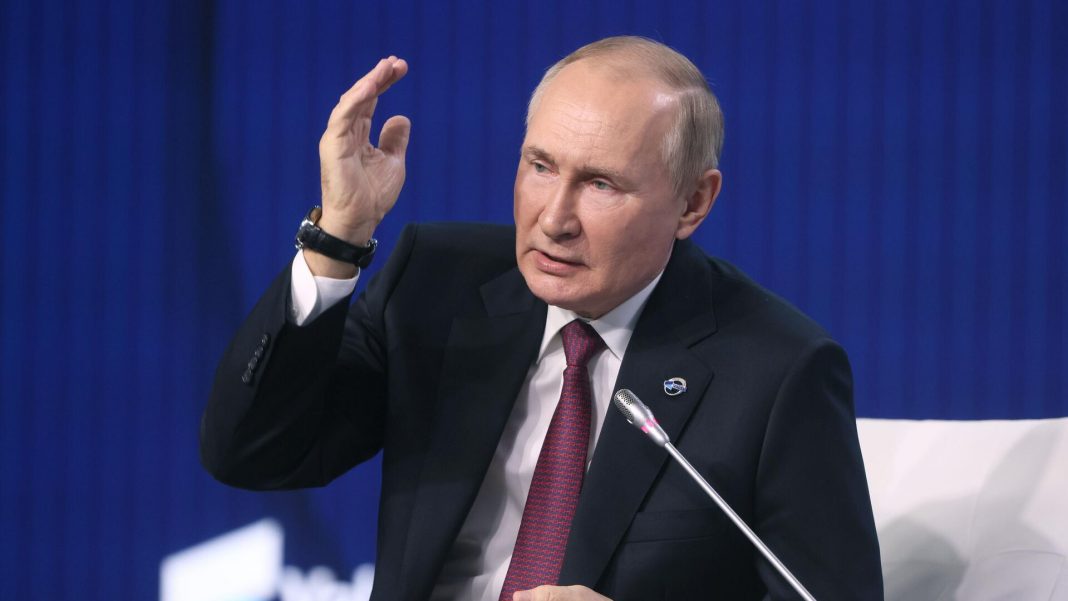On Thursday, October 5, the plenary session of the XX meeting of the Valdai International Discussion Club took place. As usual, Vladimir Putin also took part in the discussion. It is worth noting that every year, this platform is used by the Russian president to sum up the first results of the year and voice the main theses regarding the Kremlin’s plans. This approach has always provoked special interest from the world community.
However, this year, on the eve of Putin’s participation in the subsequent discussion on the Valdai platform, his press secretary Dmitry Peskov hastened to announce a significant and important speech by the Russian president:
“Every time this is an event, a global event, everyone watches it with great attention. Of course, this kind of speech at the plenary session of the anniversary annual meeting of Valdai (this is, after all, the 20th meeting) is remarkable in itself. Well, then those international conditions, that international turbulence, the transit transition – all this allows us to expect a significant and very important speech by the president. There will be a moderator with whom President Putin will be on stage. Putin will answer the moderator’s questions,” Peskov said.
The speech itself turned out to be very standard: a set of theses criticising the West and Russia’s geopolitical ambitions resembled more of another repetition of well-memorised phrases than an “event of global scale.” However, many important points are still worth considering in more detail.
In this article, Ascolta analyses Putin’s statements at the Valdai plenary session and identifies the main changes in the Russian president’s rhetoric and possible consequences for the Kremlin’s foreign policy positions.
This Content Is Only For Subscribers
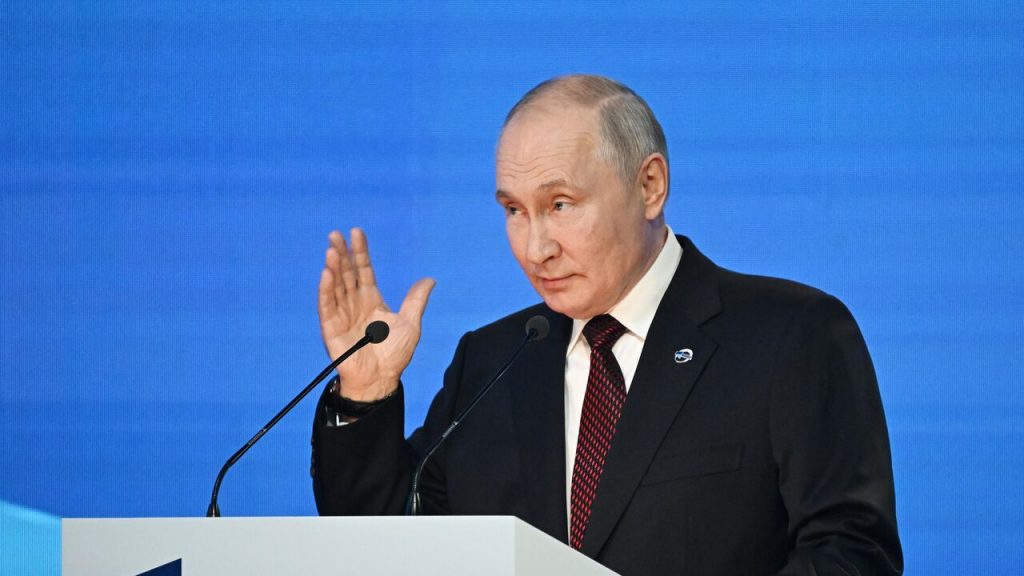
In his speech, Putin touched on several main topics, trying to shape Russia’s position towards Ukraine, Armenia, the USA, Europe, and several regional partners (China, India, and Kazakhstan). He also once again tried to demonstrate that despite sanctions pressure, the Russian economy maintains a stable position and allows it to continue military operations against Ukraine and the economic war against the West.
In general, we can identify several main trends that Putin tried to focus on:
- Firstly, Putin is not familiar (or pretends that he is not) with the real state of affairs in Russia as a whole and in the combat zone in Ukraine. His assessments regarding a number of indicators (economic, military, social) differ noticeably in each of his public speeches. An attempt to create an image of “continuous victories” looks more like a persistent formation of an alternative reality than a demonstration of stability and sustainability.
- Secondly, Putin is increasingly demonstrating his readiness to negotiate with the West, hinting at some concessions that the Russian president had not previously voiced. In this case, we are talking about the Ukrainian issue (although Putin hints at his readiness to return the occupied territories) and geopolitical relations in general. The main message that Putin is trying to convey is the desire to achieve mutual security guarantees, which were discussed in the fall of 2021.
- Thirdly, Putin is demonstrating fatigue with the Ukrainian issue, in which Russia has actually reached a complete impasse. Of course, the resumption of rhetoric such as “we will achieve the goals of the so-called “SMO” or “we want to “denazify Ukraine” may still evoke positive feelings among individual Russian citizens, but in this speech, it is more important to state the readiness to begin the negotiation process, offering softer conditions.
The main points from Putin’s speech and his communication with other participants in the discussion can be divided into several separate groups, which will allow us to form a clearer picture offered by the Russian president:
Geopolitical views of Russia
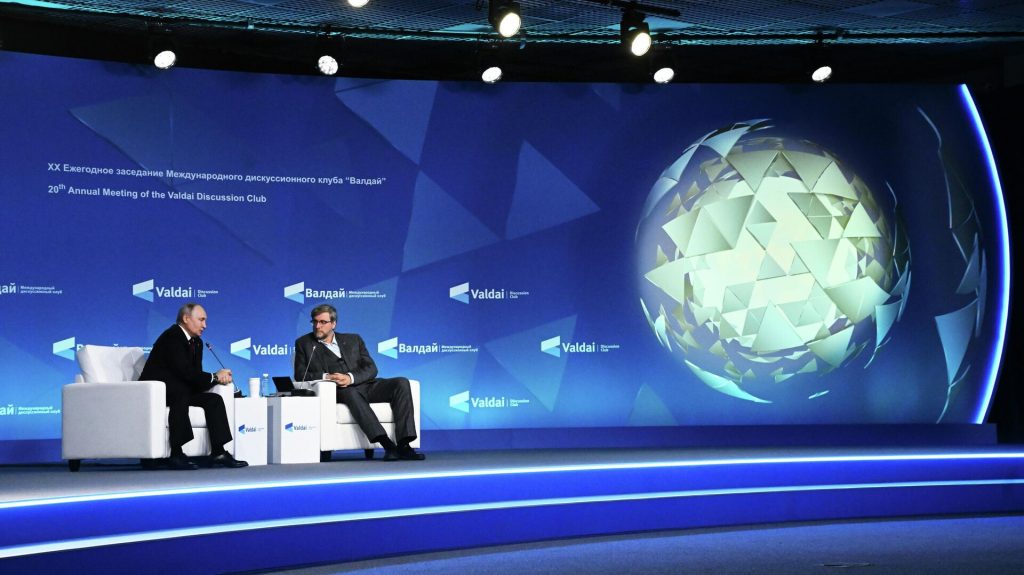
- “We are faced with the task of building a new world.”
- “For 20 years, serious changes have occurred in the world, and when the world order changes, time seems to compress.”
- “The global problems of humanity require collective solutions, and selfishness and conceit will lead to a dead end.”
- “At the beginning of the 21st century, everyone hoped that the lessons from the costly military-ideological confrontation had already been learned, but it turned out that this was not the case.”
- “It should have become obvious to everyone that the attempt by stronger countries to impose their interests on others is unacceptable, but this did not happen.”
- “Some countries, after the collapse of the USSR, mistook Russia’s readiness for constructive interaction for submission. No one would listen to Russia; the arrogance of the West was simply off the charts.”
- “After all, there was a moment when your humble servant simply suggested: maybe we should join NATO? But no, such a country is not needed in NATO. No”.
- “The history of the West is a chronicle of expansion; their influence was based on the plunder of the colonies and the entire world.”
- “In a system where arbitrariness reigns, anyone can be under attack because one of the countries did not like the hegemony.”
- “The concept of sovereignty in the current world is denied, the world is driven into the confrontation “us or them”, this is the vicious culture of the 20th century.”
- “Rub your eyes; the era of colonial rule is long over.”
- “Any unification is alien to the modern world.”
- “Humanity is moving not towards fragmentation and bloc confrontation, but, on the contrary, towards synergy.”
- “We have no interest in terms of conquering any additional territories. We still must explore and develop Siberia, Eastern Siberia and the Far East. This is not a territorial conflict or even establishing a regional geopolitical balance. The question is much broader and more fundamental: we are talking about the principles on which the new world order will be based.”
- “The world of the future is a world of collective decisions.”
- “The imposition of foreign rules on any country or people must be prohibited.”
- “It is obvious that adherence to bloc approaches, the desire to drive the world into a constant confrontation between “us and them” is a vicious legacy of the 20th century.”
- “Harmony in the security sphere is achievable; several countries just need to put aside their pride and stop looking at others as outcasts.”
- “Everyone should be provided with access to the benefits of modern development, and attempts to limit it for any country or people should be considered an act of aggression.”
- “The West first started talking about the outdated UN when the United States and its allies began bombing Belgrade without the approval of the Security Council.”
- “The global financial system is not ideal and does not meet the interests of the vast majority of participants in international communication.”
- “The global financial system created based on the dollar is gradually collapsing.”
Speaking about geopolitical processes, Putin, in his usual manner, is trying to contrast the Western system with the idea of collective governance, which is supposedly aimed at combating inequality and infringement. According to the president, the world of the future is a world of collective decisions to which any unification is alien. In fact, this thesis is Putin’s key tool in an attempt to unite around his ideas and the positions of the Global South, whose states are increasingly advocating for equal rights in the geopolitical arena.
Unable to provide economic assistance, Putin is trying to offer general ideological slogans that are more like an attempt to create a new political bloc. However, at the same time, Putin is categorically against the bloc system of the world.
Such an attempt to search for ideological allies increasingly comes up against competition with China and India, which, unlike Russia, possess several necessary economic tools and can provide more tangible assistance and support to the countries of the Global South. In this case, although it reflects several emerging trends in the geopolitical arena, Putin’s rhetoric still does not allow Russia itself to become an active participant and beneficiary of this process. However, for the domestic consumer, a relatively high-quality and satisfactory picture is created, which is very important in the run-up to the elections.
Ukrainian issue: conditions and climbdowns
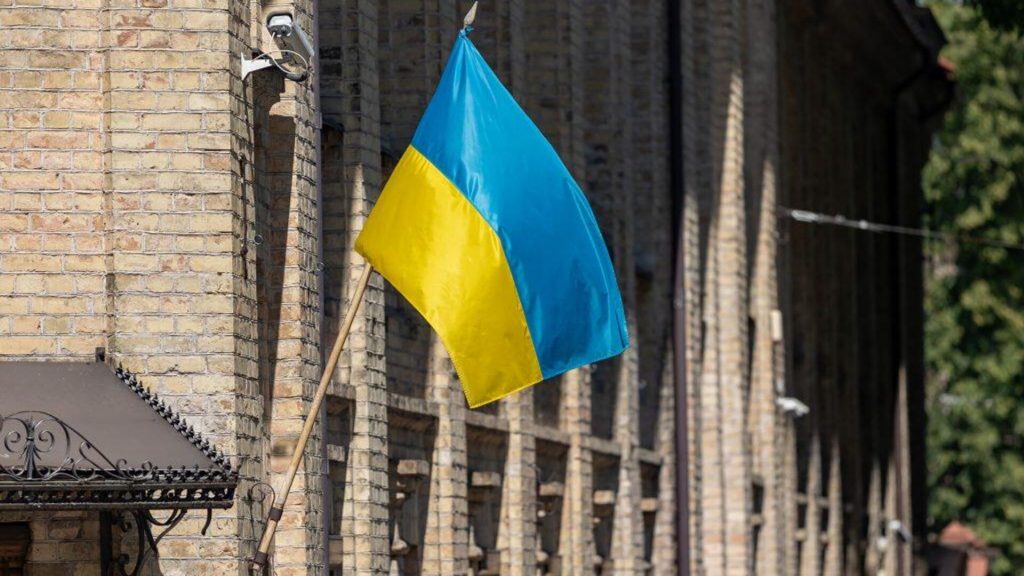
- “I have said more than once that we did not start the so-called “war in Ukraine.” On the contrary, we are trying to finish it.”
- “It was not Russia that tried to threaten Donbas with bombings and intimidate Crimea; for ten years, it was bombed, shot, tanks were used and people were killed.
- “The Ukrainian crisis is not a territorial conflict; the Russian Federation has no interest in conquering any territories.”
- “In the United States, the delay in supporting Ukraine is due to problems with the budget, but in the end, they will find money and print more.”
- “Since the beginning of the “counteroffensive” of Kyiv, since June 4, Ukrainian units have lost over 90 thousand people.”
- “I am confident that the Russian Federation will achieve its goals in the [so-called] SMO.”
- “Our common goal is to achieve the denazification of Ukraine.”
- “The President of Ukraine, a Jew by nationality, applauded in the Canadian Parliament a Nazi who was personally involved in the extermination of people in Ukraine.”
- “Odesa is, of course, a Russian city but a little Jewish.”
- “The United States provoked the Ukrainian crisis.”
- “A pro-Nazi political system has developed in Ukraine, as evidenced by Zelensky’s applause for the SS man in Canada.”
- “Russia has never objected to Ukraine’s entry into the European economic community.”
- “Russia opposes Ukraine’s membership in NATO.”
- “If military supplies end, Ukraine will hold out for a week.”
- “The Ukrainian economy can no longer exist without external support.”
- “Ukraine receives 4-5 billion dollars a month from outside; if this ends, everything will fall.”
- “Russian troops in the area of the [so-called] SMO are advancing in twelve sectors and feel confident.”
With his statements on the topic of Ukraine, Vladimir Putin tried in every possible way to demonstrate that this issue is absolutely secondary to him and does not have much influence, first of all, on the internal political situation in the country.
Despite the lack of any results, as well as regular image losses on the part of Russia (a strike on the headquarters of the Russian Black Sea Fleet in occupied Sevastopol, regular shelling of energy infrastructure on Russian territory, the liquidation of command posts), Putin is trying to demonstrate complete control of the situation.
However, the main message of his statements is different. In fact, the Russian president is beginning to speak more straight about the possibility of holding peace negotiations to resolve the Ukrainian issue. As before, he demonstrates that negotiations should be held between Russia and the United States. For him, the Ukrainian government remains dependent and illegitimate, but the process of a peaceful settlement itself seems more and more logical.
According to Ascolta, Putin’s speech was written with the participation of several representatives of the so-called “peace party” (Roman Abramovich, Sergei Kiriyenko, Vladimir Medinsky, Sergei Lavrov). They may be the ones responsible for highlighting theses about Ukraine’s possible accession to the EU, as well as the general softening of positions towards Ukraine. In essence, Putin confirms that informal negotiations on the Ukrainian issue are gaining momentum, and the parties are currently finalising their jobs.
At the same time, some theses about the supposedly successful implementation of the so-called “SMO”, heavy losses among the Ukrainian military or the failure of the counteroffensive look increasingly marginal and are intended for a domestic audience. Putin’s main message can be formulated as follows: “Give us security guarantees, and we are ready to change our conditions up to the return of the occupied territories. Though, you will have to pay for their restoration.”
Russia: present and future
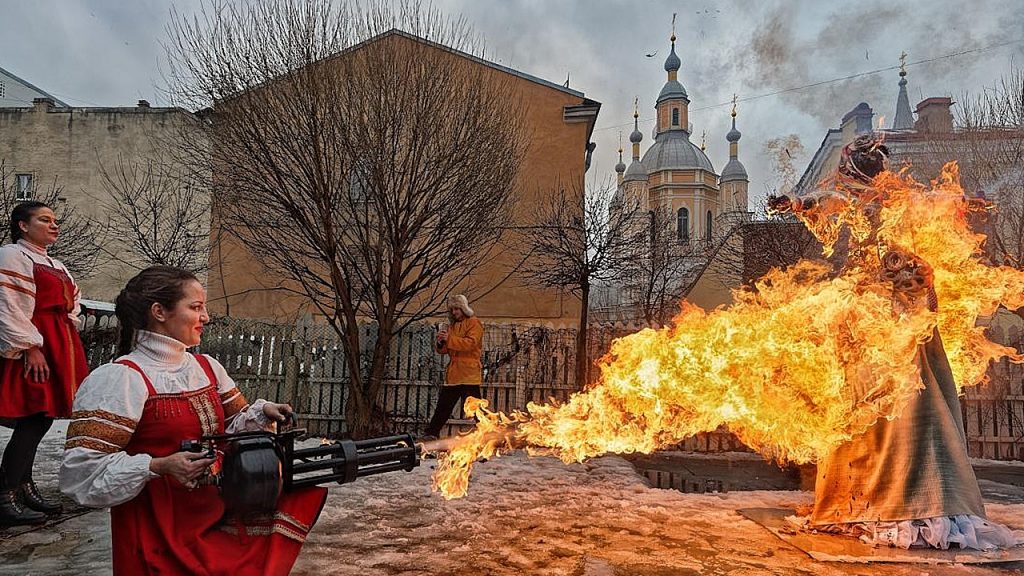
- “Russia is the largest country in the world; it is not looking for new lands.”
- “Civilization for Russia is a multifaceted phenomenon; none of them is worse or better than others; they are equal.”
- “Russia has always learned from history lessons for the future, strengthening national unity and integrity.”
- “Russia always tries to propose ideas that take into account the interests of everyone, but the West wants to push through its interests here and now at any cost.”
- “In the third quarter, Russia had a budget surplus of 660 billion rubles; by the end of the year, a deficit of around 1% of GDP is expected.”
- “The Russian budget can cope and in the future will cope with the implementation of the [so-called] “SMO”.”
- “The Russian Federation has overcome all the problems that arose after introducing sanctions; it is important to maintain this trend and not miss it.”
- “In Russia, spending on defence and security has approximately doubled – now about 6% of GDP. But all previously announced plans for the country’s development, all social obligations are being fully implemented.”
- “In Europe, real incomes of the population are falling, but here they are growing.”
- “It’s incorrect to say that we spend too much money on guns and forget about oil.”
- “We have problems, including the labour shortage. But this is followed by some other questions. But our population’s real disposable income is growing. While in Europe they fell, in our country they grew by more than 12%.”
- “Russia will cease to exist if it is not sovereign.”
- “The Russian Federation is largely leaving the fading European market for growing markets, including Asia.”
- “The world is changing, and climbing through the window and tearing your pants is not the best thing to do; there are other doors.”
- “Russia has significantly reduced its external debts; all Russian companies are servicing their obligations.”
- “The Russian authorities see a problem with the weakening of the ruble; the Central Bank and the government are taking the necessary measures.”
- “The greatness of Russia today lies in strengthening its sovereignty.”
- “Already 335 thousand people have signed contracts with the Ministry of Defense to participate in the [so-called] “SMO”, another 5 thousand have signed short-term contracts.”
Russia, in Putin’s eyes, stands at the centre of the struggle against the Western unipolar system of the world and is the only state that devotes all its resources to confronting the established order, which is accompanied by the colonial system, economic expansion, infringement of the rights of third world countries and the uneven distribution of goods and resources.
At the same time, in every possible way, Putin refutes Russia’s imperial ambitions and tries to demonstrate good intentions towards everyone who agrees to partnership and friendly relations with Moscow. Such behaviour resembles outright childishness – an attempt to create a picture of an ideal world and convince everyone that this is precisely what it will be.
The only problem in Russia that Putin regularly draws attention to is the labour shortage. According to the Russian president, this figure is the result of a functioning economy. In general, it seems that all of Putin’s main goals boil down to increasing his own support in the run-up to the elections. Social and economic issues have not been the No. 1 topic for a long time.
At the same time, Russian society demonstrates its readiness to follow a similar course. The sluggish opposition is increasingly marginalized and demonstrates no less disgust than the authorities, especially against internal contradictions and the struggle for Western grants.
Against this background, Putin confidently strengthens his dictatorship, declaring the urgent need to strengthen sovereignty. Apparently, the sovereignty of their environment. However, it is precisely these theses that the Russian president’s election campaign is based on.
Relations to the West and with the West
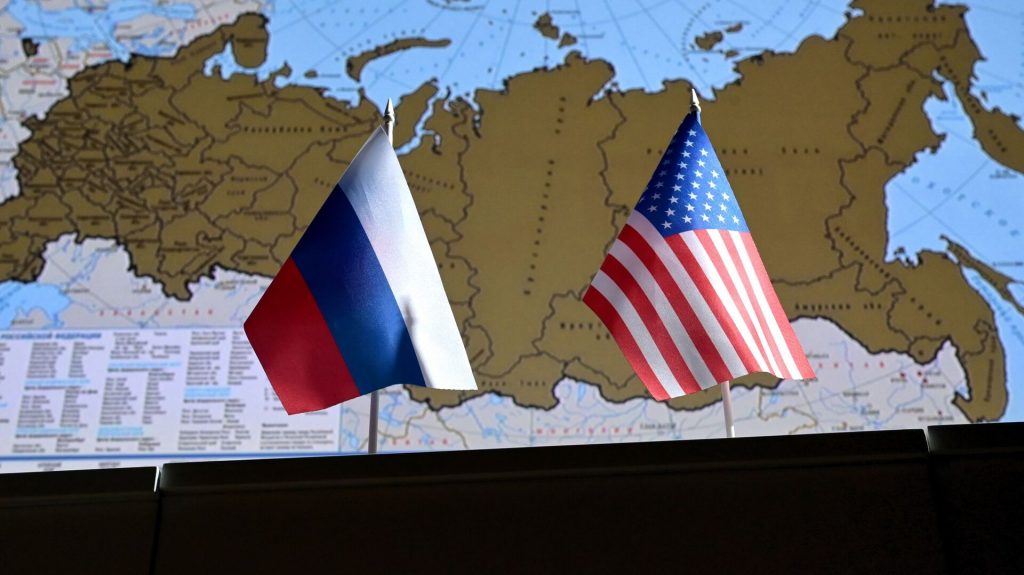
- “Tomorrow, the situation in the West may change, internal political shifts are possible after the elections, and the exact opposite will be pushed through.”
- “The United States impose their economic direction on Europe; they are trying to replace laws with some rules, this is “some kind of nonsense” and “nonsense.”
- “I don’t know what kind of civilization those on the other front line are defending, but we are defending our civilization, our people.”
- “When withdrawing USSR troops from Europe, it was necessary to agree on a new security system that would not lead to today’s crisis.”
- “The main economies of Europe are stagnating, except for Italy and Spain, where growth is associated with rising property prices.”
- “Europe can help Ukraine only through further deterioration of the economy and the situation of its citizens.”
- “If the speaker of the Canadian Parliament does not know that Hitler and his minions fought against Russia, he is an idiot.”
- “Russia is not going to impose itself on Europe – we are not the ones slamming the door, but Europe is creating an iron curtain at its loss.”
- “I agree that Europe’s previous prosperity was mostly built on cheap Russian energy resources and the Chinese market.”
- “Many Europeans themselves say that Europe has lost its sovereignty.”
- “One branch of Nord Stream 2 is being preserved.” It is intact and can supply 27.5 billion cubic meters of gas to Europe. This is only the decision of the German government. I do not need anything else. Today is the decision – tomorrow, we turn the valve, and that’s it – the gas flows. But they don’t do this. Because, as we say, the Washington regional committee does not allow it. To the detriment of our interests.”
- “Europe imposed sanctions against Russia because it was forced to follow its American sovereign.”
- “I have friends in Germany, and their number is growing.”
- “If the EU is ready to accept Ukraine with its current economy into its membership, “flag in hand.”
- “NATO is, first and foremost, an instrument of US foreign policy.”
- “The US authorities are shooting themselves in the foot with their economic decisions.”
Putin’s position towards the West is going through certain transformations. The struggle to change the global world order, to which Putin constantly appeals, faces several problems. Firstly, Moscow’s proposals turned out to be not as attractive to the Global South as, apparently, initially expected. Secondly, the West turned out to be more united and strong in helping Ukraine and opposing Russia.
This situation forces Putin to reconsider his original positions and offer more lenient conditions based on new realities. At the same time, he does not abandon the main goal – mutual security guarantees and written recording of further non-expansion of NATO (or its complete elimination) are key priorities. The remaining issues are considered to be under discussion.
Putin skillfully plays on the contradictions between Europe and the United States, demonstrating his readiness to return to cooperation in the energy sector if European leaders begin to take a more pragmatic position and stop following US advice. It demonstrates both the existence of opportunities to increase gas supplies and the presence of Russia’s allies and “friends” in different European countries.
In essence, Putin indicates his willingness to fight for Europe with economic rather than military instruments. At the same time, in his understanding, this struggle will be long and gruelling. According to Putin, the main question is only when Europe will understand the prospects for renewed cooperation and change its positions.
At the same time, Putin proposes transitioning to more constructive relations with the United States. He completely refused direct threats against Washington. Once again, the nuclear threat is being neutralised. Frank’s criticism remains only on the economic and political planes.
In fact, we can state the Russian “peace party” won in the foreign policy topics. In this situation, it can be assumed that Antony Blinken’s words about a possible meeting between the presidents of the United States and Russia are gradually taking on new meanings.
Relationships with partners and new perspectives
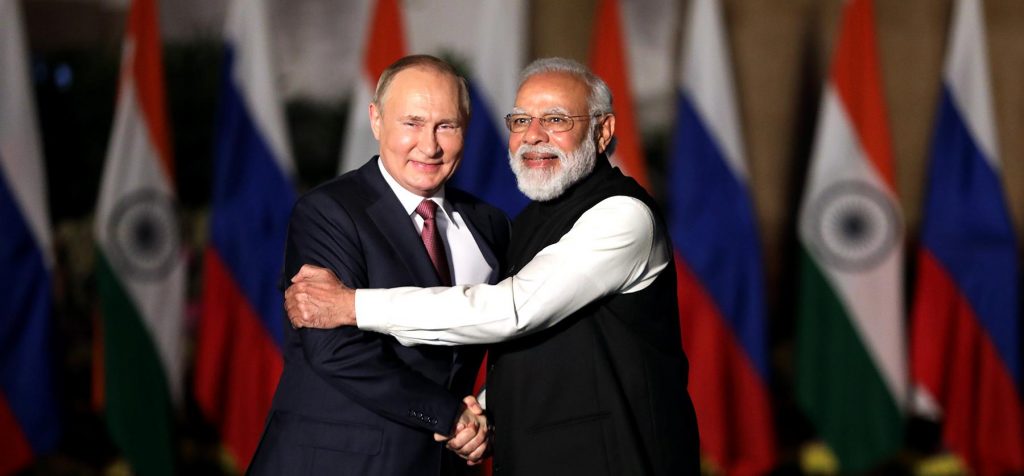
- “The Indian leadership, I want to say, is independent, very nationally oriented, and I think that these attempts [to tear India away from Russia] make no sense, but, nevertheless, they continue.”
- “China and Russia are interested in establishing new logistics routes.”
- “All cooperation with China was not built against anyone; it is constructive.”
- “The importance of India, Brazil and South Africa in the world should increase; their opinion should be considered when shaping world politics.”
- “The Ukrainians are aiming to damage the Turkish Stream; they are trying to attack it; we hear English speech there.”
- “Russia is ready to increase LNG production and build new pipelines for supplies to other countries.”
- “Russia pays Ukraine for the gas transit to the West because Ukraine is a transit country; we must fulfil our obligations to our counterparties.”
- “If Japan takes the initiative in normalizing relations with the Russian Federation, Russia is ready for cooperation.”
- “The politicization of the G20 is the surest path to its elimination.”
- “Relations between China and Russia are a stabilizing factor in the world.”
- “Russia will expand cooperation with China, including in the security sphere.”
- “The basis of US policy towards China is geopolitical fears. The growing power of China is what frightens them. It’s not that the rights of minorities are violated there. Does this really bother anyone? No. This is only a tool to fight China. That’s all. The same applies to Russia.”
- “In BRICS, it is necessary to create not a single currency, but a financial logistics system and mutual settlements in national currencies.”
- “Russia will begin supplies of Russian gas to Kazakhstan and Uzbekistan this month.”
Positioning Russia at the regional level is the main challenge for Putin. The lack of a strong economy and the levelling of other important indicators against the background of stronger and more influential partners creates strategic threats for Moscow.
At the same time, new opportunities are emerging. First, we are talking about the development of new logistics routes, in which Russia occupies an important place. The thesis about the importance of Russian energy resources not only for Europe but also for such countries as China and India is also being updated.
In general, Putin is increasingly trying to appeal to India; such a friendship might allow him to avoid falling into absolute dependence on China. However, India itself is in no hurry to take an openly pro-Russian position, trying to pursue a pragmatic policy and build strong relationships with all possible partners.
Central Asia also remains an important factor for Moscow. In his speech, Putin returns to the issue of creating a triple gas alliance between Russia, Kazakhstan and Uzbekistan (Ascolta repeatedly analyzed this direction back in 2022). At the same time, in this region, Moscow is faced with the growing influence of Beijing and Washington, which significantly complicates the further expansion of its influence.
However, in global terms, Putin clearly defines Russia’s plans. First of all, this is the creation of new logistics routes, further strengthening of energy exports to Asian countries, as well as building and strengthening political alliances at the regional level.
Armenia: another partner
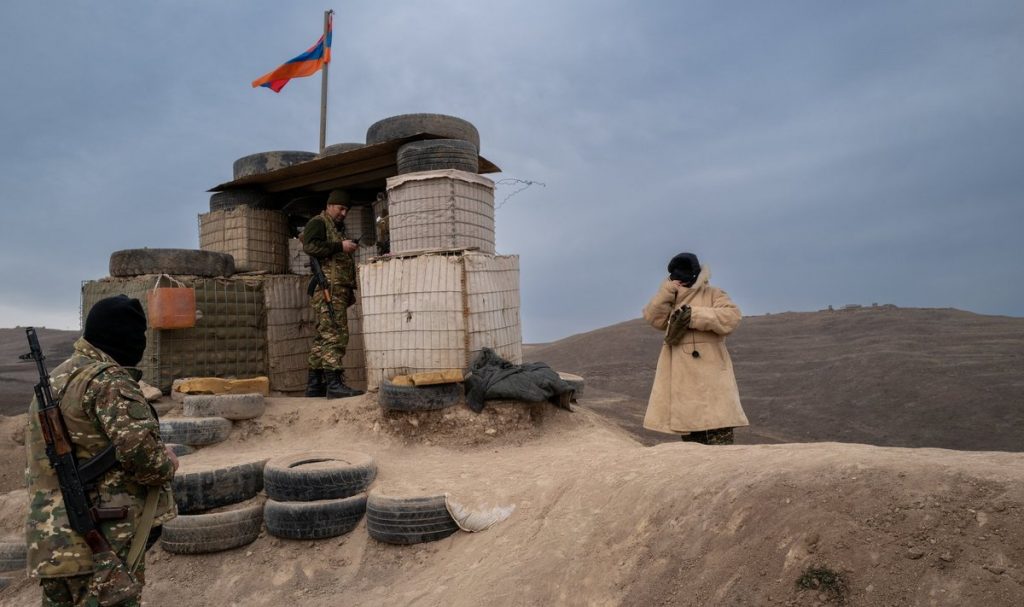
- “For 15 years, Russia has offered Armenia to compromise and return five territories of Karabakh to Azerbaijan and keep 2 for itself, but they refused.”
- “The Russian peacekeepers in Karabakh after 2020 had rights only to monitor compliance with the ceasefire.”
- “Armenia itself recognised Karabakh as part of Azerbaijan.”
- “Russia has long offered Armenia solutions to Karabakh, but Yerevan refused, expressing its readiness to ‘fight’.”
- “The Armenian delegation itself directly named the territory in square kilometres, including Karabakh, which was recognised as Azerbaijan.”
- “Baku called on Moscow to negotiate the status of Russian peacekeepers in Karabakh on a bilateral basis, and Pashinyan agreed.”
- “When and in what way Azerbaijan would establish constitutional order in Karabakh was only a matter of time.”
- “Armenia does not cease to be an ally of Russia.”
- “There are almost no Armenians left in Nagorno-Karabakh.”
- “The Russian Federation calls on Baku to show mercy to the former leadership of Karabakh.”
- “If Armenia remains an ally of Russia, Moscow is ready to continue to assist the Armenians of Karabakh.”
Putin pays special attention to the situation in the South Caucasus. As Ascolta previously analysed, Armenia is a strategically important area for Putin, where there is an intense struggle with the West to influence the entire region.
On the one hand, Putin demonstrates absolute indifference to the Prime Minister of Armenia, Nikol Pashinyan. On the other hand, it demonstrates that Russia does not refuse to help the Armenians and is always ready to provide support.
In fact, concerning Armenia, Putin is forming the same position as about Ukraine: he does not recognize the legitimacy of the local authorities but is ready to discuss issues of further settlement of the situation with those whom he considers the real beneficiaries of the situation (as with Ukraine, we are talking about the USA).
Such Putin’s statements may turn out to be an additional provoking factor for the Armenian opposition, as well as those Armenians who believe that Russia has left Armenia without support in the Nagorno-Karabakh issue. Putin makes it clear that the blame for the loss of Karabakh lies entirely with Pashinyan, who actually refused Russian help and trusted the mediation of France and the United States.
It is noteworthy that at a time when Pashinyan himself is trying in every possible way to demonstrate a pro-Western position (meets with Western leaders, takes pictures with Vladimir Zelensky, supports the ratification of the Rome Statute, and so on), Putin publicly declares the preservation of friendly and partnership relations with Armenia. In this case, it is worth talking specifically about the political struggle, on the results of which, first of all, the stability of Pashinyan himself will depend.
Russian “Nuclear threat”
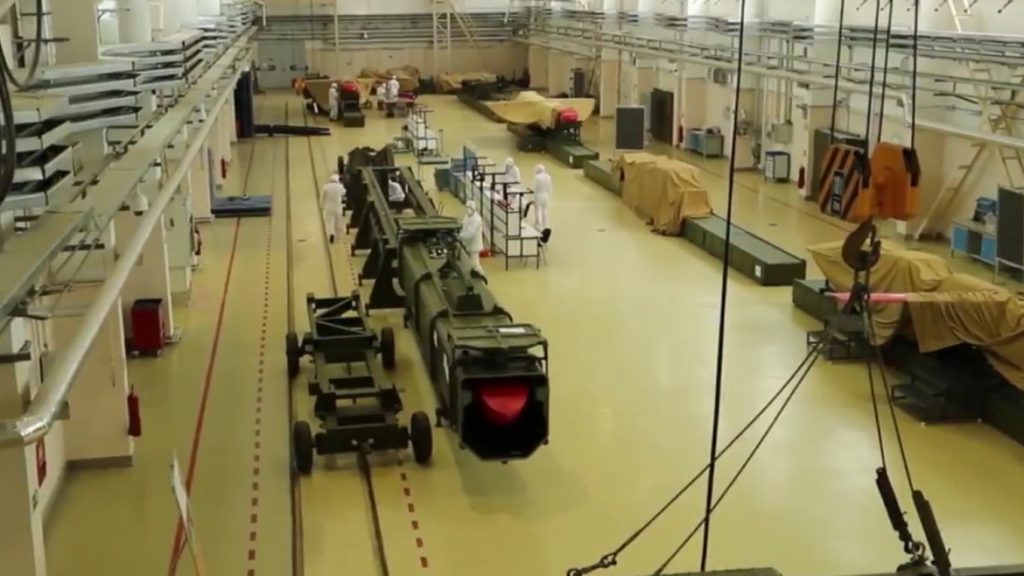
- “A Russian retaliatory strike to a nuclear attack by any potential enemy will leave him no chance of survival.”
- “Today, there is no situation that threatens Russian statehood.”
- “I don’t see the need to change the military doctrine of the Russian Federation.”
- “No person in his right mind would think of using nuclear weapons against Russia.”
- “Russia has actually finished work on Sarmat.”
- “Russia may withdraw ratification of the nuclear test ban treaty.”
In essence, with his speech, Putin puts an end to the issue of the use of nuclear weapons. He makes it clear to the whole world that this issue is not being considered seriously and is only a subject for discussion in the public space by such marginal figures as Dmitry Medvedev (it is important to note that in this case, Putin is also playing along with Medvedev himself, who is trying in every possible way to demonstrate that he can come to power and pursue more radical policies).
At the same time, Putin confirmed the information about the resumption of nuclear tests, as previously reported by many media outlets. And even though now we are talking only about the successful testing of a nuclear-powered rocket (Burevestnik), the preparation of nuclear test sites (which is being carried out not only in Russia but also in the USA and China) indicates the beginning of a new nuclear arms race. Hence, the statement about the possible withdrawal of ratification of the nuclear test ban treaty. Moreover, following Putin’s speech, State Duma Speaker Vyacheslav Volodin has already stated that a similar issue will be considered by deputies soon.
Вопрос легализации ЧВК в России и итоги расследования гибели Пригожина
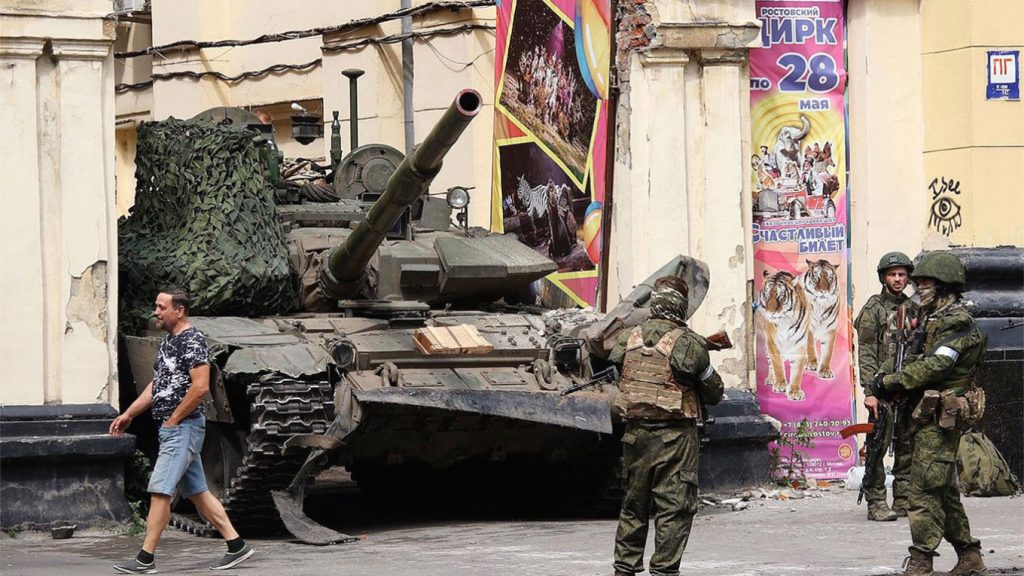
- “The Wagner Group’s experience as a PMC was clumsy.”
- “Several thousand former PMC fighters signed a contract with the Russian Ministry of Defense.”
- “There is no consensus yet whether such formations as private military companies are needed.”
- He was surprised that the Wagner PMC staff was paid in cash: “It’s my fault too.”
- “There were no external forces on Prigozhin’s plane.”
- “The head of the Russian Investigative Committee, Bastrykin, reported to me that grenade fragments were found in the bodies of those killed in the plane crash.”
- “There was no examination for the presence of alcohol and drugs in the bodies of those killed on Prigozhin’s plane, although it would have been worth carrying out.”
- “10 billion rubles in cash were found in the office of Yevgeny Prigozhin’s company in St. Petersburg.”
By mentioning Prigozhin, Putin closed the issue of the plane crash with the leaders of the Wagner PMC on it. The investigation results into the disaster, which was previously announced by Russian law enforcement agencies, were announced by Putin (albeit referencing the Head of the Russian Investigative Committee, Bastrykin).
It can be assumed that in voicing such results, Putin pursued two primary goals. Firstly, he ended this issue for the domestic audience (primarily the most radical supporters of Prigozhin and the “war party”). Secondly, he, in fact, denigrated the image of Prigozhin as much as possible: the presence of a vast amount of cocaine in his office, violation of tax regulations and possession of large sums of cash, illegal arms trafficking and several other similar charges form Prigozhin the image of a terrorist and drug dealer, which does not correlate with the image that was previously formed around the curator of the Wagner PMC. It is possible that “evidence” of Prigozhin’s cooperation with Western intelligence services or facts of receiving funding from Western states will be published soon.
At the same time, Putin commented on the further prospects for creating PMCs in Russia. Despite their actual existence and active use in Africa and Ukraine, the Russian president continues to deny such structures’ existence and expresses doubt about their effectiveness. In fact, as Ascolta has repeatedly written about in its analytical publications, any Russian PMCs are controlled by the structures of the Russian Special Operations Forces. Putin’s statement can be regarded as the result of the end of the struggle in the security bloc for influence on such formations. They will remain in the same status and will be controlled by the same Special Operations Forces (led by General Valery Flyustikov). Talks about expanding the powers of the Russian Guard, the head of which actively sought to gain control of some PMCs, is completely de-actualised.
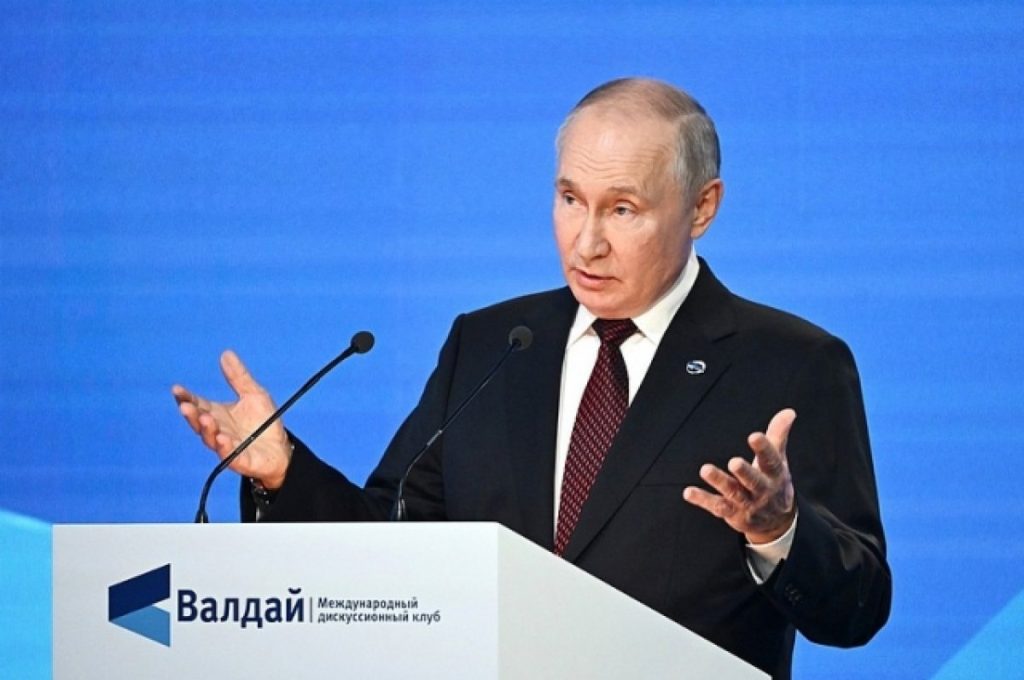
Vladimir Putin ended his speech at the plenary session of the 20th session of the Valdai International Discussion Club with the words: “The strengthening of a multipolar world is inevitable.” In this case, it can be said that such processes are taking place in the geopolitical arena, and their further intensification is inevitable. However, Russia’s attempts to declare louder than anyone else about strengthening its role look more like the position of an ordinary observer than a sovereign participant in constructing a new world order.

